

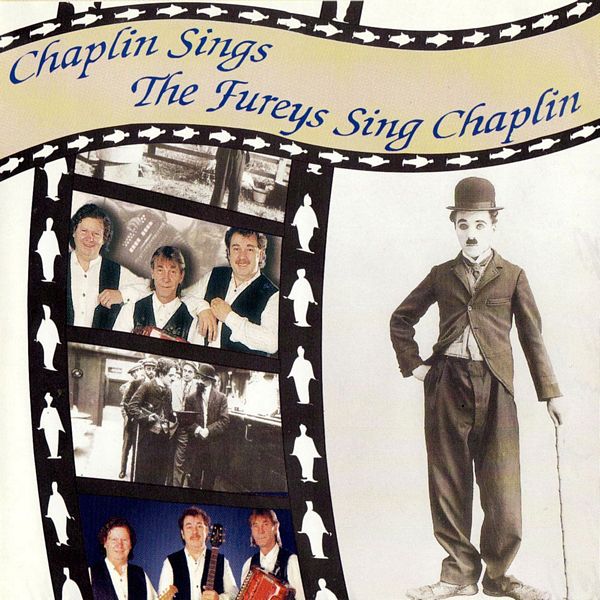 |
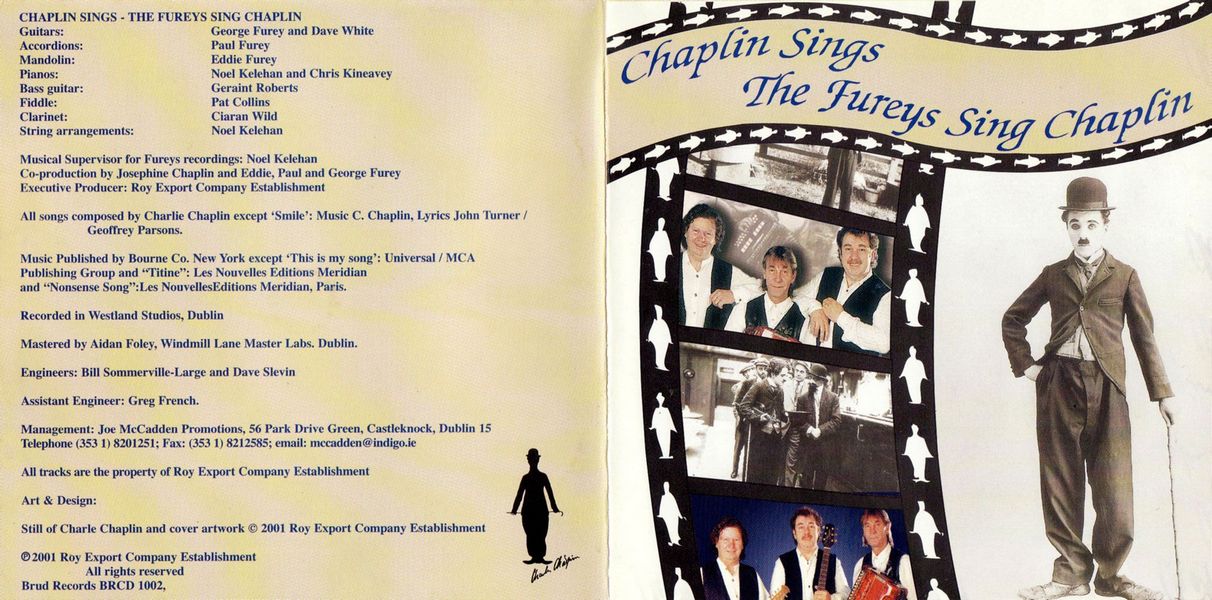
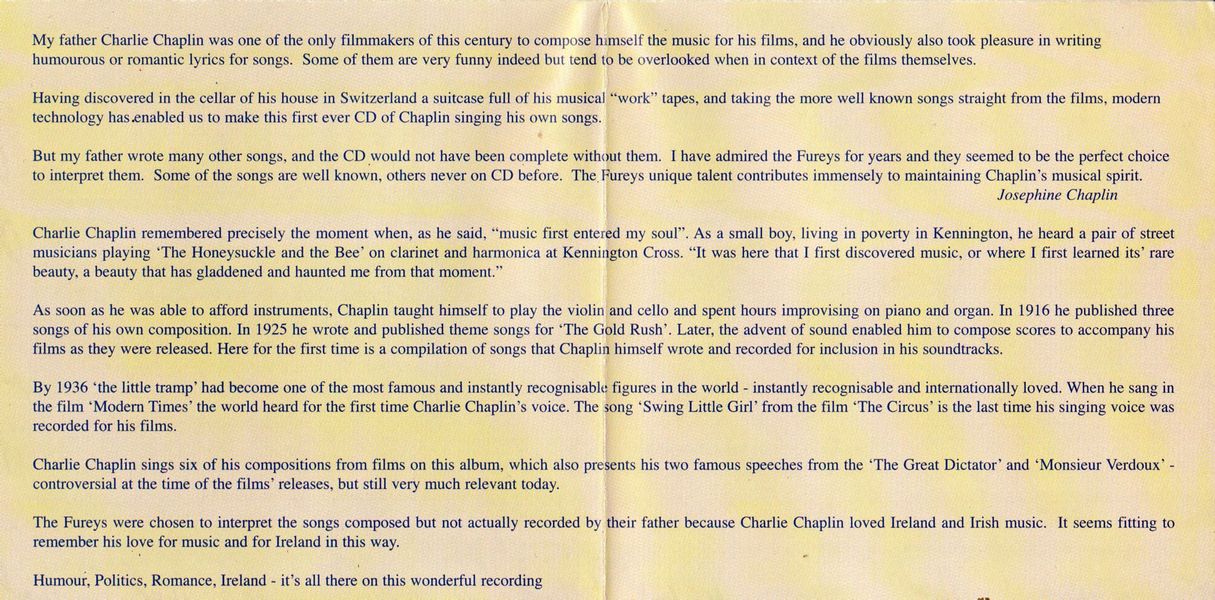 |
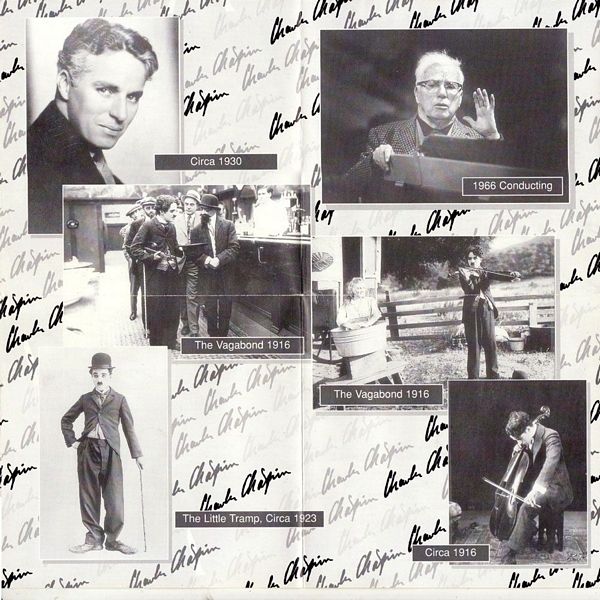

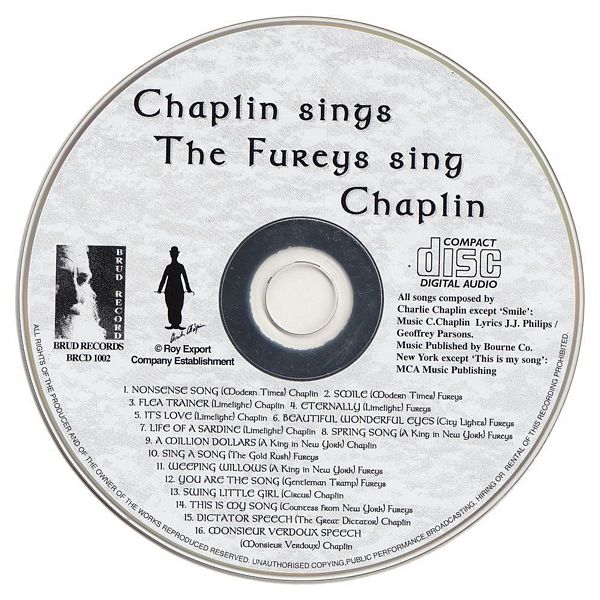
|
Sleeve Notes
My father Charlie Chaplin was one of the only filmmakers of this century to compose himself the music for his films, and he obviously also took pleasure in writing humourous or romantic Lyrics for songs. Some of them are very funny indeed but tend to be overlooked when in context of the films themselves.
Having discovered in the cellar of his house in Switzerland a suitcase full of his musical "work" tapes, and taking the more well known songs straight from the films, modern technology has enabled us to make this first ever CD of Chaplin singing his own songs.
But my father wrote many other songs, and the CD would not have been complete without them. I have admired the Fureys for years and they seemed to be the perfect choice to interpret them. Some of the songs are well known, others never on CD before. The Fureys unique talent contributes immensely to maintaining Chaplin's musical spirit.
Josephine Chaplin
Charlie Chaplin remembered precisely the moment when, as he said, "music first entered my soul". As a small boy, living in poverty in Kennington, he heard a pair of street musicians playing 'The Honeysuckle and the Bee' on clarinet and harmonica at Kennington Cross. "It was here that I first discovered music, or where I first learned its' rare beauty, a beauty that has gladdened and haunted me from that moment."
As soon as he was able to afford instruments, Chaplin taught himself to play the violin and cello and spent hours improvising on piano and organ. In 1916 he published three songs of his own composition. In 1925 he wrote and published theme songs for 'The Gold Rush'. Later, the advent of sound enabled him to compose scores to accompany his films as they were released. Here for the first time is a compilation of songs that Chaplin himself wrote and recorded for inclusion in his soundtracks.
By 1936 'the little tramp' had become one of the most famous and instantly recognisable figures in the world — instantly recognisable and internationally loved. When he sang in the film 'Modern Times' the world heard for the first time Charlie Chaplin's voice. The song 'Swing Little Girl' from the film 'The Circus' is the last time his singing voice was recorded for his films.
Charlie Chaplin sings six of his compositions from films on this album, which also presents his two famous speeches from the 'The Great Dictator' and 'Monsieur Verdoux' — controversial at the time of the films' releases, but still very much relevant today.
The Fureys were chosen to interpret the songs composed but not actually recorded by their father because Charlie Chaplin loved Ireland and Irish music. It seems fitting to remember his love for music and for Ireland in this way.
Humour, Politics, Romance, Ireland — it's all there on this wonderful recording